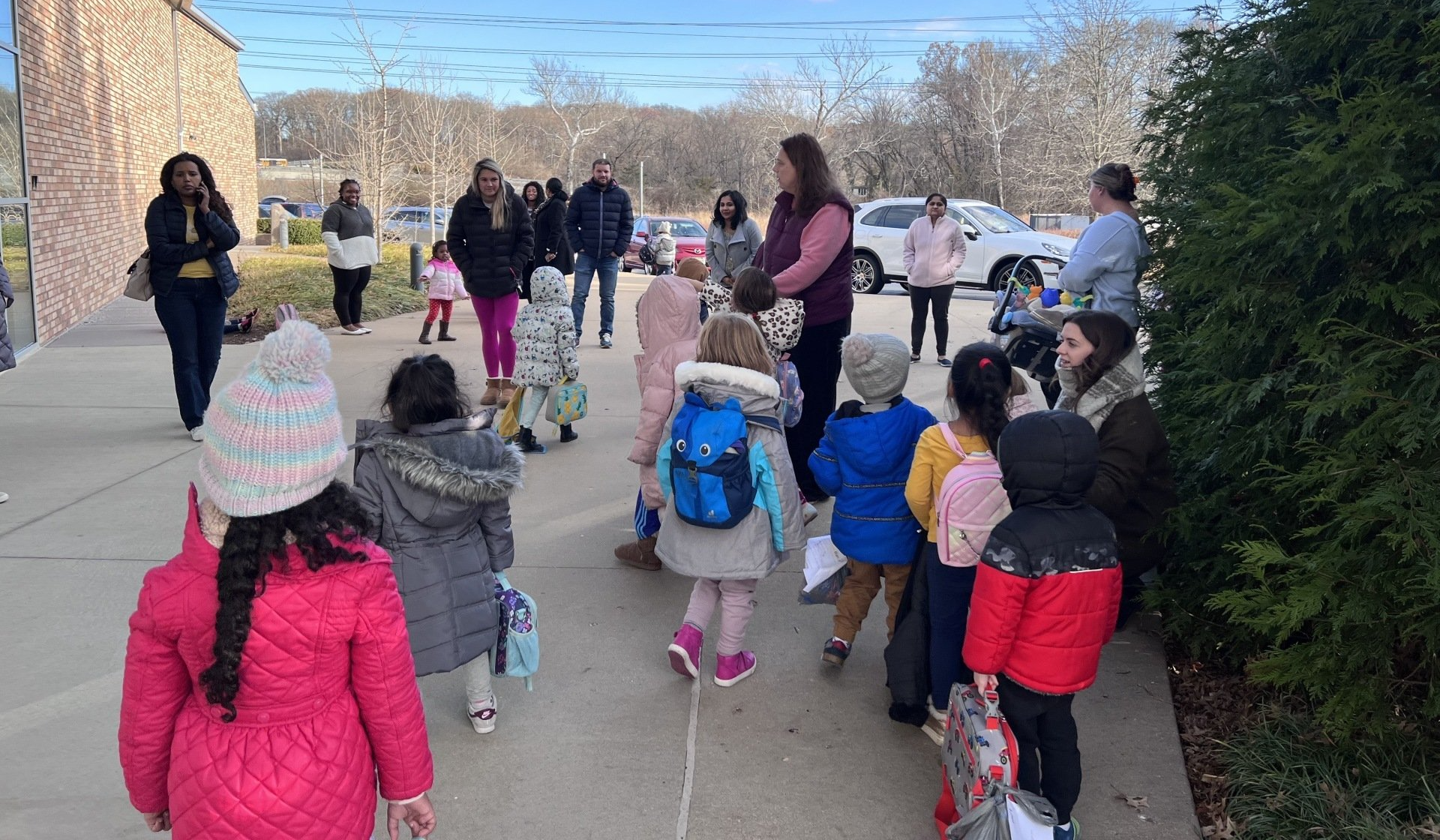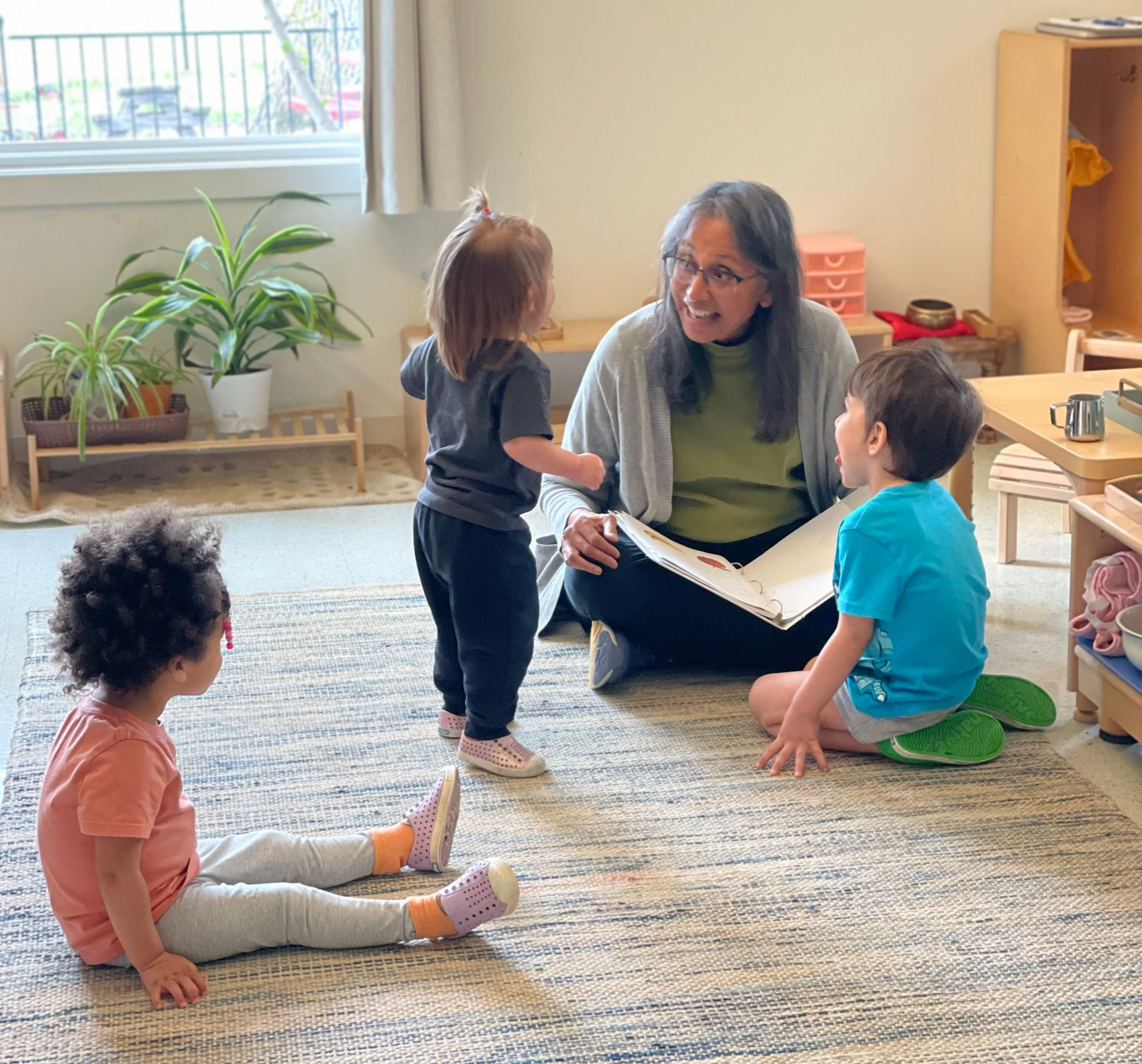Does this sound familiar? You ask your child about their day when picking them up from school and learn little to nothing from their response. It can be challenging for parents who did not attend Montessori schools to think of more specific questions about their child’s day. How can you ask specific questions if you’re unsure about how their day is laid out?

First of all, as parents at a Montessori school, you have the unique opportunity to come and observe your child’s classroom any time. Please reach out to the office at info@chesterfieldmontessori.org to schedule a time to observe. Additionally, we can offer some tips to help you navigate after-school conversations with your children.
As adults, if we are asked right as our day ends, “What did you do today?” we can easily feel overwhelmed and think, "I don't know; I did a lot, but nothing I can specifically recall." Children go through the same thing, especially when they don’t have all the language to describe what they’re learning. It’s important to focus on redirecting after-school conversation with your child.
Your child knows that you will want to hear about their day. Children want to be engaging and interesting to adults. They want to give you valuable information, so they will fill their minds by collecting these things they know how to report. Negative stories draw us in, understandably so; therefore, children notice this and begin to compile throughout the day a list of things they can share when asked, “How was your day?”
As parents, it’s natural to want any glimpses into your children's days. But, in order to help them be their most successful, moving away from negative reporting is important work. This is certainly not to say you shouldn't reach out when your child reports concerns, but it’s also helpful to shift the pick-up focus to more positive things.
Lead by Example
The first thing you should do when picking up your kids is give them a big smile and you’re undivided attention the moment you see them. Avoid having your phone out or other distractions. Then, if you want to learn about your child’s day, start by sharing about your workday. Provide specific details that mirror information you’d like to learn from your child.
For example, if you want to learn more about the peers your child works closely with, try talk about your coworkers and a problem you solved together. Then, prompt your child by asking something like, “Did you solve a problem with any of your friends at school today?”
Setting an example with specific questions might help your child recognize a time that went similarly during their day. Even if they can’t think of an example, talking about the specifics of your day – what you did, where you went, what you enjoyed and what you disliked – demonstrates to your child how to discuss theirs. This strategy may not yield immediate discussion or results, but continued practice models examples that your child will notice and eventually copy.
Also, ask them specific questions about the stories they share. At the end of your questioning, you can summarize the story for them, which sets a great example for talking about their day. While some questions might be challenging or take more time for younger children to process, the prompts will linger in their mind for the future, as they collect moments they want to share with you.
Helpful Questions to Ask:
What was the best part of your day?
What did you try really hard to do today?
Did you offer to help anyone?
Did you have a hard time with anything today?
What did you do today at recess?
Is there someone you want to be friends with?
Did anything make you laugh today?
Were you able to do something you really wanted to do today?
At Home Activities
Looking for positives takes, even as adults, requires a lot of coaching. One thing that Heather OverKamp, the Director of Education and Admissions, practices with her family is sharing three things they’re grateful for at dinner or before bed. “I’ve been amazed at the difference it's made for me, especially when I've had a difficult day,” she said.
It’s also important to give your child space to unwind after school and do what they want to do. Children are developing socially at all levels in different ways. They are trying to find their way around their classroom environments, their place among peers, and their confidence in difficult situations. Meaningful conversations will come with time, so try to be patient with them.
No matter the strategies used, talking with your children about their day is an important thing to do as a parent. Engaging and encouraging them to talk about their day is a great way to strengthen emotional connections by demonstrating that you care about the details of their life and what they want to tell you. Modeling behavior also helps them develop storytelling skills, learn about time sequencing, self-identify strengths and deduce answers. So, start chatting on your ride home today!
Please reach out if you have any questions. Know that we are here to partner with your entire family.





